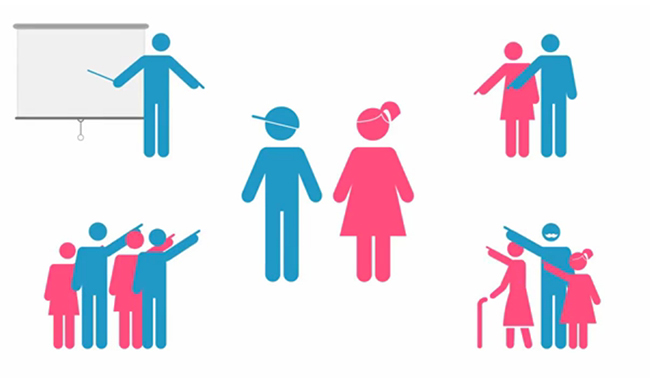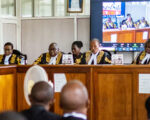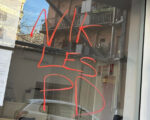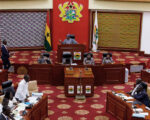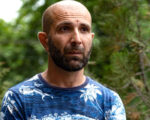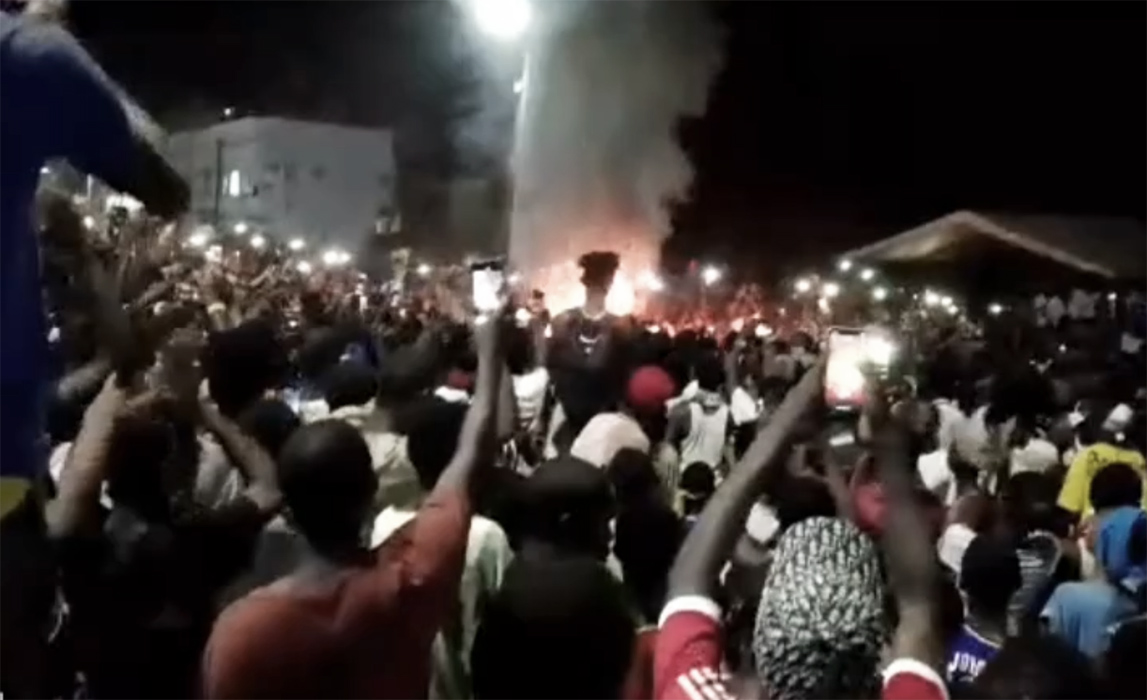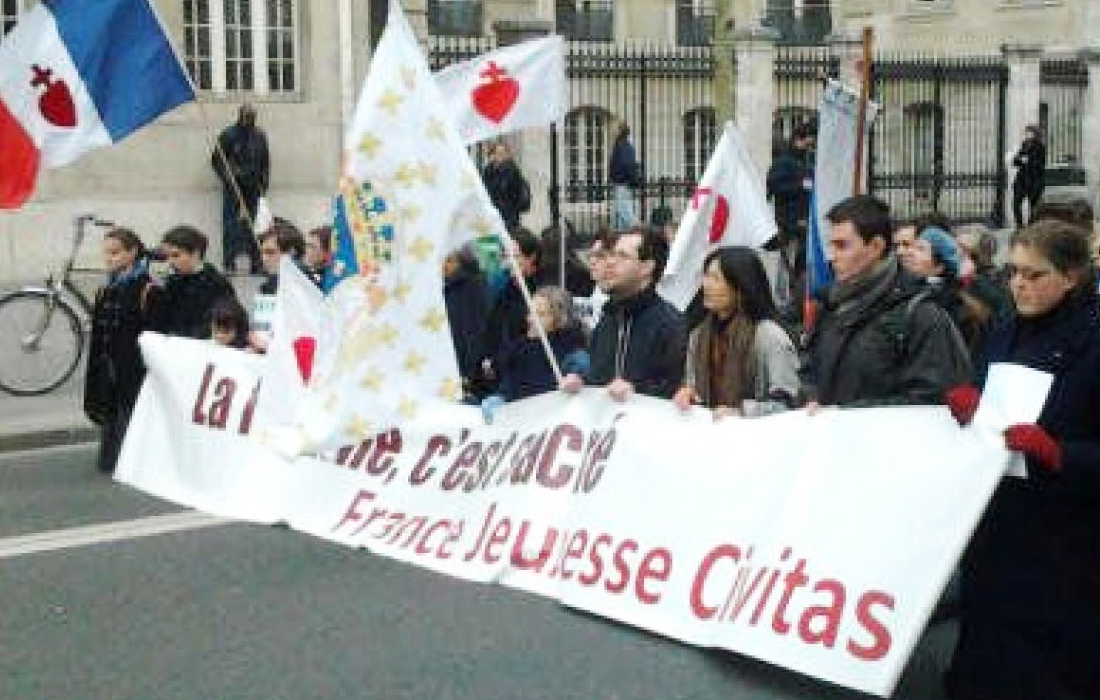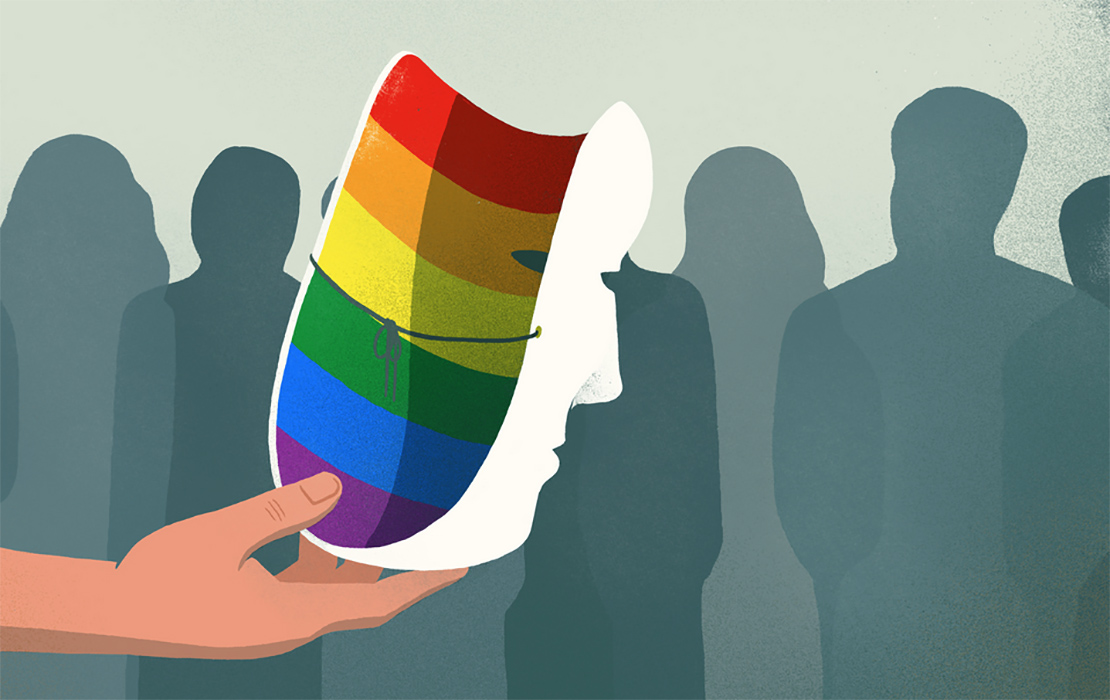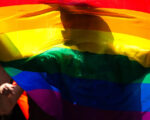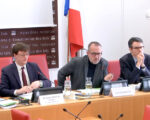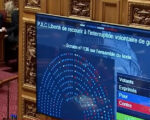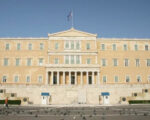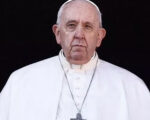>> The World According to Homophobes : Documenting The Ignorance
[spacer]
C’est en entendant ce genre de remarques – on doit celle-ci à un militant de la Manif pour tous, interrogé par une chaîne d’information française -, qu’Emmanuelle Schick-Garcia a décidé de réaliser un documentaire sur l’homophobie. La réalisatrice canado-espagnole, très engagée (elle avait déjà adressé deux lettres ouvertes à Christine Boutin), a été estomaquée par la virulence des opposants à la loi Taubira :
« Au Canada, les discours publics sont plus contrôlés. Les propos racistes, sexistes ou homophobes sont dénoncés et punis. Mais en France, les gens se lâchent… »
C’est donc dans l’Hexagone qu’Emmanuelle Schick-Garcia vient de commencer le tournage de son film, qui entend poser cette vaste question : que trouve-t-on dans le cerveau d’un homophobe ?
Alternant entretiens et séquences de caméra cachée, le Monde selon les homophobes fait le pari de comprendre d’où vient l’hostilité à l’égard de l’homosexualité. Comment se construit ce tabou, cette «fabrique de la honte» ? Quel est le rôle des religions dans ce processus ? Doit-on incriminer un manque d’éducation sexuelle, notamment à l’école ? Pour élargir son propos, la réalisatrice compte se rendre en Colombie, en Espagne, et en Europe de l’Est.
[spacer]
[spacer]
La collecte s’effectuait jusqu’à la fin novembre, via la plateforme de financement participatif Indiegogo
Chaque donateur avait également la possibilité de voter pour l’homophobe «de son choix». On y trouvait ainsi Sarah Palin, Ludovine de la Rochère, Michele Bachmann ou encore Robert Mugabe mais il semble que “Maria Luisa Piraquive”, directrice de l’Eglise de Dieu ministérielle de Jésus-Christ international, mouvement évangélique très puissant en Colombie, dominait le classement. Si l’intégralité de l’argent nécessaire à la production du film est récoltée, Emmanuelle Schick-Garcia s’engage à diffuser ce dernier gratuitement au moment de sa sortie, à l’automne 2015.
En attendant, sur leur chaîne VIMEO, “le monde selon les homophobes” partage des “versions parodiques” contre la désinformation des vidéos propagandes diffusées par La Manif Pour Tous, comme ce fameux clip il y a quelques jours, sensé nous expliquer le “gender” en trois minutes de contresens.
L’égalité des genres pour les nuls (une parodie) from TWATH on Vimeo.
A voir également, la dernière, inspirée de la vidéo “The Humanum Series” (avec des participants proches de la «Manif pour tous»).
Parodie de “The Humanum Series” from TWATH on Vimeo.
Avec source :
Pour Libération.fr
[spacer]
>> The World According to Homophobes is a feature documentary about the sexual education of homophobes, from neo-nazis and paramilitaries involved in homophobic acts of rape and violence, to citizen groups who block gay couples from entering city hall on their wedding day, to citizens who march for the right of children to have a mother and father.
Filmed in four countries, the documentary explores the superstitions, sexual knowledge and body image views of people who hate, avoid or are uncomfortable with homosexuals or simply view them as inferior.
The crowdfunding campaign will be launched September 30th, 2014.
The film will be released in June, 2015.
>> The condition of homophobia is rooted in education. Whether these teachings come from scripture, government or family ignorance, homophobia is “not something that is happening naturally. It is something that is constructed.”
In director Emmanuelle Schick Garcia’s latest project, The World According To Homophobes, she is entering the battlefield of homophobia to find how these misguided constructs forced their way into the popular idiom. Raised in a devoutly Christian household, Garcia’s coming out was faced with the unnecessary shame and guilt associated with a strict religious upbringing. It is now her mission to explore such homophobia tropes in an attempt to educate the uneducated.
The World According To Homophobes is currently in pre-production with the hopes of being released middle of next year.
I heard that you are currently in Paris. Are you Parisian by birth?
I was born in France but I am not French. My dad is Canadian and my mother is Spanish and I grew up in Vancouver.
But you graduated from UCLA, correct?
Yes. I spent eight years in Los Angeles getting my degrees at UCLA.
Do you miss L.A.?
I really do miss UCLA. I haven’t been back in a while but I really loved the time that I spent there and I think it’s different when you are a student as opposed to living and working. My life in Los Angeles was not quite engrained in reality. It was a beautiful campus…the typical lifestyle of a student. I did really love Los Angeles so I am not entirely sure if it would be the same if I went back now and I actually had to work and spend a lot of time on the highway.
You’re almost in a bubble while going to UCLA. A lovely bubble, but still a bubble.
A very beautiful bubble!
In terms of “The World According To Homophobes,” was this a documentary you wanted to film since you came out? Or was the idea for this feature something that came to you more recently?
It’s more recent because I wasn’t going to do a documentary about homosexuality because my family doesn’t think it’s necessary. This changed after witnessing the 2012 Sarkozy debates and the association and the movement that rose from that and since then [the sentiments] are still very active. I felt that there were not enough voices in the media speaking out against what was going on – especially from gay people. My reaction, as it is for most filmmakers, is that I want to discuss homophobes and discuss why they have the point of view that they have and the superstitions and the fear. A lot of things that I went through personally – since I have a lot of family members that are extremely homophobic – resonated with me in the discourse that I was hearing from this movement. They are very politically correct so they are not as aggressive or mean but their arguments make a lot of sense with ordinary citizens because a lot of the tradition (of Catholicism, and religion and the family) resonates with people here in France. I know that my family here in France and my family in Canada holds two very different responses. I found this very interesting. I was looking at what was happening through what had happened to me. I know there are cultural reasons for why people act the way they do and I know there are religious reasons and I also know that there is a lot of ignorance. If you look at Canada sexual education was made mandatory in 1985 and much later in other countries. In Poland for example, sexual education has never been mandatory. This aids in people coming up with crazy ideas that are not on their own, but they are constructed. The emotion of shame plays a very strong role in not being able to let go of these stereotypes. Unfortunately, in France, you are not denounced for homophonic rants. We heard some incredible things here. There was an allusion made that children raised by gay parents were going to become terrorists. We heard that gay meant pedophilia and that children were at risk for getting raped. All these things don’t come out of the blue. There are historical roots for why these links keep getting made. To make a long story short, my personal experience definitely resonated when I saw what happened in 2012 and what is still happening today. I just had enough.
The emotion of shame plays a very strong role in not being able to let go of these stereotypes.
Obviously the content with something of this magnitude is limitless. When you were beginning your research, did you begin at the more molecular level with your family and work outward toward countries and political regimes?
For example (in regard to sexual education), my grandmother grew up very poor in Spain. She left school when she was 14 and when my aunt first told her that she had her period she was slapped in the face. There are so many taboo subjects because of religion – in my family’s case it was Catholicism. Because of religion you can’t discuss these subjects rationally without feeling shame or guilt, especially when it comes to the body and sex. These sorts of experiences created my aunt and my mother’s views on sex. I do think that sexual education is important in schools because most of the time parents are not equipped nor do they have the correct information or expertise to teach about sexuality or sex or the body. It puts a lot of young people at risk. There is this argument that if there is sexual education kids will want to go out and try sex or who knows what dirty thoughts they are putting into the minds of children. But if you look at sexual education it is quite basic. A lot of sexual education doesn’t talk about masturbation or someone who is intersex. A lot of those things are completely off the radar. For me, it stems from the question of why is it so important for us to remain ignorant? It started with my own family and how they reacted to the subjects. [This was evident] when I was apart of the protest with the homophobes on two occasions. They are very focused on the sex aspect. That’s when you see that it’s not even a generational gap. Homosexual discourse is about rights for the family, whereas homophobes are obsessed with anal sex, body parts and genitalia. One guy held a poster with two penises with a giant X through them that read, “Never this.” It’s not even a discussion about what this means for homosexuals. It always get reduced and I think that’s because there is a real shame to their own relationship to their own body and homosexuals are giving them the option of talking about all these things that are repressed. That’s my take on it because I saw it in my own family.
Do you intend to show this documentary to your family?
Yes. My parents are very supportive now. It’s funny because parents aren’t homophobic until it affects their own children. All of the sudden, my parents thought it had to do with how they raised me. An aunt of mine sent nasty letters saying that it was the fault of my mother. All of this was actually happening without me knowing. Everyone was talking without asking me [about my homosexuality]. Once again, it’s something incredibly difficult to talk about because it has been taboo for so long. People ask me why I am making a film about homophobes since we hear so much about them and their opinions, but I think it is important because there is some hope. We should engage with people who have homophobic reactions and attitudes. Unfortunately, it is our role as a homosexual to explain [homosexuality]. As homosexuals we have to be so patient of the intolerance, especially if it’s our family. It’s a little bit of a give and take. I’m sick of having to always be careful of what I say because it would make [homophobes] uncomfortable even if they are making me uncomfortable! Why don’t I have a say in this? That’s why it is important to focus on homophobes. What is creating this? It’s not something that is happening naturally. It is something that is constructed.
As homosexuals we have to be so patient of the intolerance, especially if it’s our family.
Speaking of patience, how difficult is it to keep a straight face (pun not intended) when you are interviewing someone who is such a blatant homophobe?
It’s difficult with nearly every documentary that I have done because when you meet them they can be quite personable and there are things that you have in common. You have can have a great rapport with someone and than it turns out that they are homophobic. If the person is stubborn or very convinced of these arguments or their point of view than it is difficult to have a discussion. I think I can keep a straight face because those discussions I take seriously even though sometimes the arguments are incredibly offensive. Sometimes homophobes don’t have enough contact with an actual homosexual so they are not able to bounce off ideas and arguments with someone who knows what they are talking about because they are gay. That never happens, especially here in France where [homophobes] become soundboards for each other. There are eight gay people supporting their movement. When I hear them talk they often reference Catholicism. For this reason I think that they have come out of the closet and feel that they have already done enough harm to their family so this their way of having repentance by believing that gays should not have children. It’s a way to even out the score. It is important to talk about religion and that role it plays when establishing this point of view. All the arguments of the La Manif Pour Tous have had always made reference to Catholic teachings and the differences between man and woman as a reason not to teach gender equality at school. What’s bizarre to me is that I feel most have not read The Bible and are instead just repeating things that their gut feeling is telling them.
The film features four countries, correct?
Yes. At the moment we plan to be in four countries. Columbia is one of them. Columbia is an interesting case study because they actually have pretty progressive laws similar to Germany. But the attitude and the machismo culture is still very prevalent in Columbia. I am baffled by how these laws got passed because it’s still very difficult to be out in Columbia. The coming out of celebrities and politicians happens quite regularly in The United States, which has a huge influence on the rest of the world. Here in France there are very few out personalities. In Columbia that is the same thing. Beside Ricky Martin, in the Latin community there are not a lot of mentors that people can look up to and use an example. I remember my family was completely shell shocked when Ricky Martin came out. They did not see that coming at all. They didn’t know how to handle that they liked Ricky Martin while still believing tthat gay people were wrong or weird or strange or too sexual. Homophobes have blinders on and don’t realize that a gay person is like anybody else – they could be right wing or left wing, they could be boring or be a partier. There is a huge spectrum and some are serious and some are not. It’s shocking that homophobes still have these clear-cut ideas of what a gay person is.
Can you talk more about what experts you sought out for the documentary?
These are people who have done research and wrote a lot of books about violence and what causes people to feel so threatened by others. One of the books I really love is Preventing Violence by James Gilligan. This is one example of people we hope to interview for the film. We hope to cover in the construction of the script a lot about shame and how we look at other people because shame is all about the eyes and how look or don’t look at them. When someone is ashamed you look down at the floor or in certain cultures women can’t look at men in the eyes. All this begins somewhere and how we learn to deal with the body. There’s also this notion that the body is dirty and gay sex is dirty, especially for men. A lot of the insults are specifically for men coming from men and women are sort of invisible. There is a senator in Columbia that said that lesbians are not important and silly and that gay men are disgusting and their sex is excremental and dirty. It all comes back to who’s being penetrated and who’s penetrating. Here is France there was a conference held by the La Manif Pour Tous where a renowned theologian, philosopher and published author spoke. At the end of his discourse he said that women are meant to be penetrated and women to penetrate. In the end that is why there is insult for gay men who are penetrated and that’s the reason why in certain cultures there is a name for that type of man. Homophobes are sexist as well because they believe there is something demeaning about being feminine or having feminine attributes. There is this culture that we have constructed where men are supposed to be strong and be the pursuer. It all comes down to this sexual act and who you are on the pecking order. You keep hearing about the Natural Order (which comes from The Bible) and women are at the bottom of that…so are gay men who have to be penetrated. When I was doing all this research and reading all this discourse I noticed that most of the arguments were from people in positions of power who are intelligent and have gone to university and have PhDs.
It all comes back to who’s being penetrated and who’s penetrating.
I also noticed that there is a voting process with the film and there will be a screenings targeted at homophobes…
We felt that a lot of these films or documentaries that speak about these issues get play at LGBTQ festivals, which is great but I wanted to go straight into the wolves den and into the hometown of a homophobe where that homophobe has a lot of influence. I wanted to act as a mirror…this what you look like and this is where your arguments came from. Did you know that? This is the kind of sexual knowledge that you have. The vote is for those who are sick of hearing homophobic insults in the media and to give them that ability to participate. We want to do the premiere in the homophobes town so we can do press and make it an event and force the discussion. Hopefully – this is a long shot – we will have the homophobe attend the screening. I don’t know if that’s going to happen but maybe they’ll surprise us and be willing to see what the film is all about. Than they can either disagree or have a better understanding of homosexuality. I would love for every gay to bring a homophobic friend to a screening.
Bring a homophobe to work day.
Exactly! That is how we can begin to bridge the gap.
For more information on the documentary (currently in development) please visit https://www.facebook.com/wath2015


